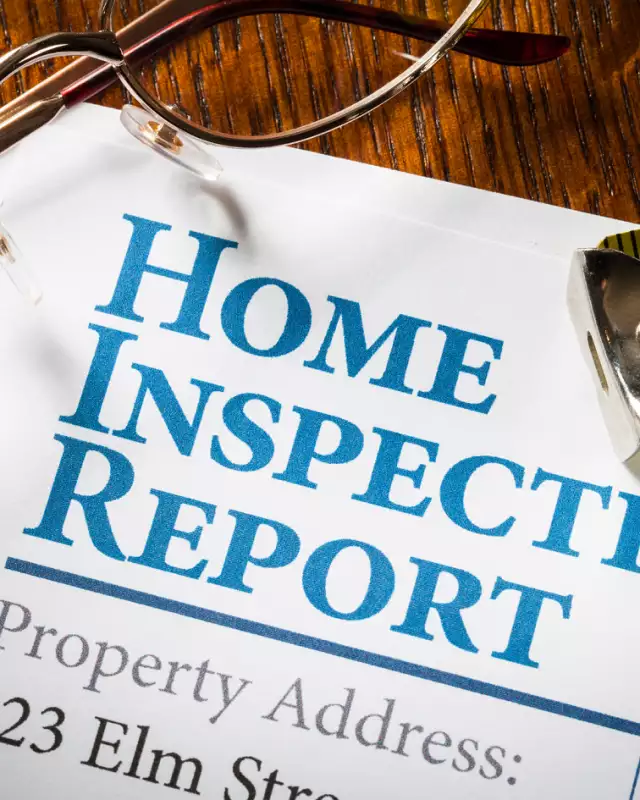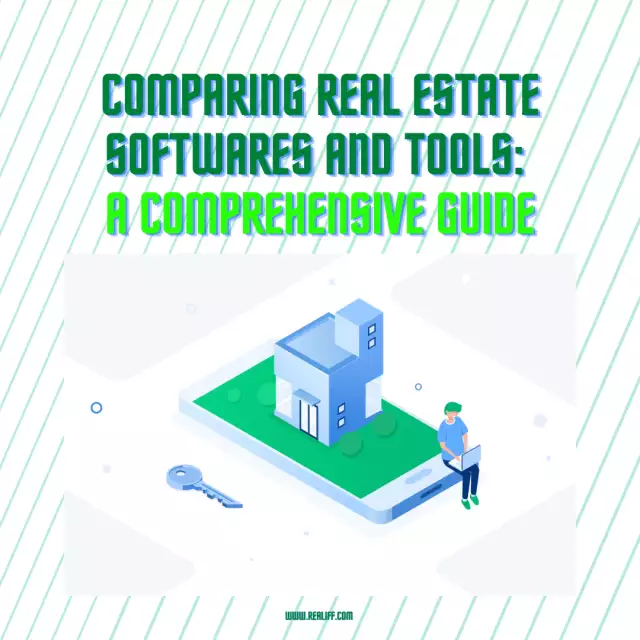Unlocking the Power of Real Estate CRM: A Comprehensive Guide for Success
Unlocking the Power of Real Estate CRM: A Comprehensive Guide for Success
In the dynamic world of real estate, where time is money and client relationships are the cornerstone of success, harnessing technology becomes essential. Among the myriad of tools at a real estate professional's disposal, Real Estate Customer Relationship Management (CRM) software stands out as a pivotal asset. This comprehensive guide explores the transformative potential of Real Estate CRM, delving into its significance, benefits, and how it can revolutionize your real estate operations.
Understanding Real Estate CRM Software
What is Real Estate CRM?
Real Estate CRM software is more than just a digital tool—it's a strategic powerhouse that empowers real estate professionals to streamline their operations, automate repetitive tasks, and cultivate stronger client relationships. Designed specifically for the real estate sector, these platforms serve as centralized hubs for managing leads, tracking client interactions, and optimizing workflows. By consolidating crucial data and communication channels, Real Estate CRM software allows agents and brokers to navigate the complexities of property transactions with precision and efficiency.
Why Real Estate CRM Matters
The real estate market is characterized by its fast-paced, ever-changing nature, diverse client needs, and complex transaction processes. While generic CRM solutions can offer some advantages, Real Estate CRM software is tailor-made to meet the unique demands of the industry. From lead generation and follow-up to marketing automation and transaction management, these platforms provide a comprehensive suite of features designed to enhance every aspect of real estate operations. As real estate mogul Barbara Corcoran aptly puts it, "In real estate, the smallest details are often the most crucial." This precision and attention to detail are precisely what Real Estate CRM offers.

Choosing the Right Real Estate CRM
Key Factors to Consider
Selecting the right Real Estate CRM for your business is a critical decision that requires careful consideration of several factors, including pricing, features, scalability, and ease of integration. With numerous options available, it's essential to assess your specific business needs and conduct thorough research. Realiff.com, with its extensive listings and AI-driven technology, serves as an invaluable resource for real estate professionals seeking guidance on selecting the optimal CRM solution.
When evaluating CRM options, consider the following key aspects:
- Pricing: Ensure the cost aligns with your budget while delivering value.
- Features: Identify the functionalities essential for your operations.
- Scalability: Choose software that can grow with your business.
- Integration: Look for platforms that integrate seamlessly with your existing systems.
Comparing Leading Real Estate CRMs
To aid in your decision-making, let's explore some of the top Real Estate CRM software options available:
1. Close
Close provides all-in-one functionality with strong mobile app support, catering to small and medium-sized real estate businesses. Its features include email, calling, and SMS capabilities, customizable workflows, and seamless API integration.
2. Liondesk
Liondesk excels with its AI lead assistant chatbot, social media integration, and robust lead capture tools. It offers comprehensive contact management, workflow automation, and pre-written email templates for efficient communication.
3. HubSpot
HubSpot is renowned for its extensive marketing automation features and versatile software tools suitable for businesses of all sizes. Its strengths include email marketing capabilities, a landing page builder, and drip email campaigns, making it a favorite among real estate professionals.
4. Wise Agent
Wise Agent focuses on marketing and listing management, automating tasks and reminders for streamlined workflow management. It features robust contact management, custom workflows, and built-in reporting tailored to real estate agents' needs.
5. Pipedrive
Pipedrive offers a visual sales pipeline with a user-friendly drag-and-drop interface and excellent email integration for seamless communication. Its lead management and client relationship tools make it a versatile option for real estate professionals.
6. Zillow
Zillow integrates seamlessly with its listing website and offers powerful contact management features. It enables agents and brokers to effectively input and manage contact information, track leads, and schedule appointments.
7. Salesforce
Salesforce stands out for its flexibility and customization options, robust mobile app support, and comprehensive marketing automation features. Its capabilities in drip campaigns, marketing automation, and project management make it a formidable solution for real estate businesses.
8. Propertybase
Propertybase empowers teams with a flexible contact management system and advanced lead distribution features. It facilitates efficient management of contacts, listings, and transactions, with the added bonus of a website builder for enhanced online presence.
9. Follow Up Boss
Follow Up Boss excels in unified communications tracking, automated reminders, and task management. Its integration with various productivity tools and centralized communication hub make it a valuable asset for real estate teams.
10. Top Producer
Top Producer offers a comprehensive contact database, robust task management, and an extensive document library. It supports scheduling appointments and provides team performance analytics, catering to the operational needs of real estate professionals.
News in the Real Estate CRM World
As of June 2024, the Real Estate CRM landscape is buzzing with innovations and growth:
- AI-Driven Enhancements: Leading CRM providers like Liondesk and Propertybase have significantly upgraded their AI capabilities, offering more intuitive lead management and personalized client interactions.
- Mobile-Optimized Solutions: With the growing reliance on mobile technology, CRMs like Close and Salesforce have enhanced their mobile app offerings, providing greater accessibility and functionality on the go.
- Enhanced Data Security: In response to increasing data privacy concerns, CRM platforms are bolstering their security measures to ensure client and transaction data are protected against breaches.
These advancements highlight the critical role of technology in real estate, continuously pushing the boundaries of what’s possible.
Insights from Industry Leaders
"Technology in real estate is not just a trend; it's a revolution. CRM systems are at the forefront, transforming how we connect with clients and close deals," says Gary Keller, co-founder of Keller Williams Realty. This sentiment underscores the growing influence of CRM software in redefining industry standards and enhancing operational efficiency.

The Most Comprehensive Tips for All Aspects of Real Estate CRM
1. Lead Management
Efficient lead management is paramount for maximizing conversion rates and driving business growth. Utilize your CRM to meticulously track and manage leads, ensuring that no opportunity is overlooked.
2. Communication Automation
Automate routine communication tasks to save time and maintain consistent client engagement. Features like automated email responses and follow-up reminders can significantly boost productivity.
3. Integration Capabilities
Choose a CRM solution that offers seamless integration with your existing tools and platforms. This ensures a streamlined workflow and enhances overall productivity by allowing data to flow effortlessly between systems.
4. Customization Features
Opt for CRM platforms that provide robust customization options, enabling you to tailor the software to meet your specific business needs. This flexibility ensures that your CRM evolves alongside your business.
5. Reporting and Analytics
Leverage the reporting and analytics tools within your CRM to gain valuable insights into your business performance. These insights are critical for making informed decisions and strategizing for future growth.
6. Training and Support
Select CRM providers that offer comprehensive training and support resources. This is vital for smooth implementation and ongoing usage, ensuring that your team is well-equipped to utilize the CRM effectively.
7. Scalability
Ensure that your CRM solution can scale with your business. As your operations expand and evolve, your CRM should be capable of growing to meet your changing needs, providing a sustainable foundation for long-term success.
Essential Questions and Answers
Q. Why is Real Estate CRM software essential for agents and
brokers?
A.Real Estate CRM software centralizes data,
automates tasks, and optimizes workflows, streamlining operations,
enhancing client relationships, and driving business growth.
Q. When should real estate professionals invest in CRM
software?
A.Real estate professionals should invest in CRM
software as soon as possible to maximize efficiency and
productivity, especially as their business grows and client base
expands.
Q. Where can real estate professionals find the best CRM
solutions?
A.Reputable providers like Realiff.com offer
extensive listings and expert guidance to help you select the
optimal CRM for your business needs.
Q. What features should real estate professionals look for
in a
CRM?
A.Key features to look for include lead
management, communication automation, integration capabilities,
customization, reporting and analytics, training and support, and
scalability.
Q. Who benefits the most from using Real Estate CRM
software?
A.Real estate agents, brokers, property managers,
and other industry professionals benefit significantly from using
CRM software to streamline their operations and manage client
relationships effectively.
Q. How does Real Estate CRM software improve client
relationships?
A.Real Estate CRM software improves client
relationships by providing tools to track interactions, automate
follow-ups, and personalize communication, ensuring consistent and
effective engagement.
Conclusion
In today's competitive real estate market, Real Estate CRM software is not a luxury but a necessity for agents and brokers aiming to excel. By leveraging the right CRM solution, professionals can streamline operations, enhance client relationships, and drive substantial business growth. Realiff.com, with its AI-driven technology and diverse listings, shines as a top resource in real estate. It offers valuable insights for buyers and sellers. Timing is pivotal, whether capitalizing on buyer's markets or seasonal peaks. Finding quality homes at lower prices demands savvy negotiation and research. By leveraging these tools and strategies, Realiff.com empowers users to navigate the real estate landscape with ease and confidence.









